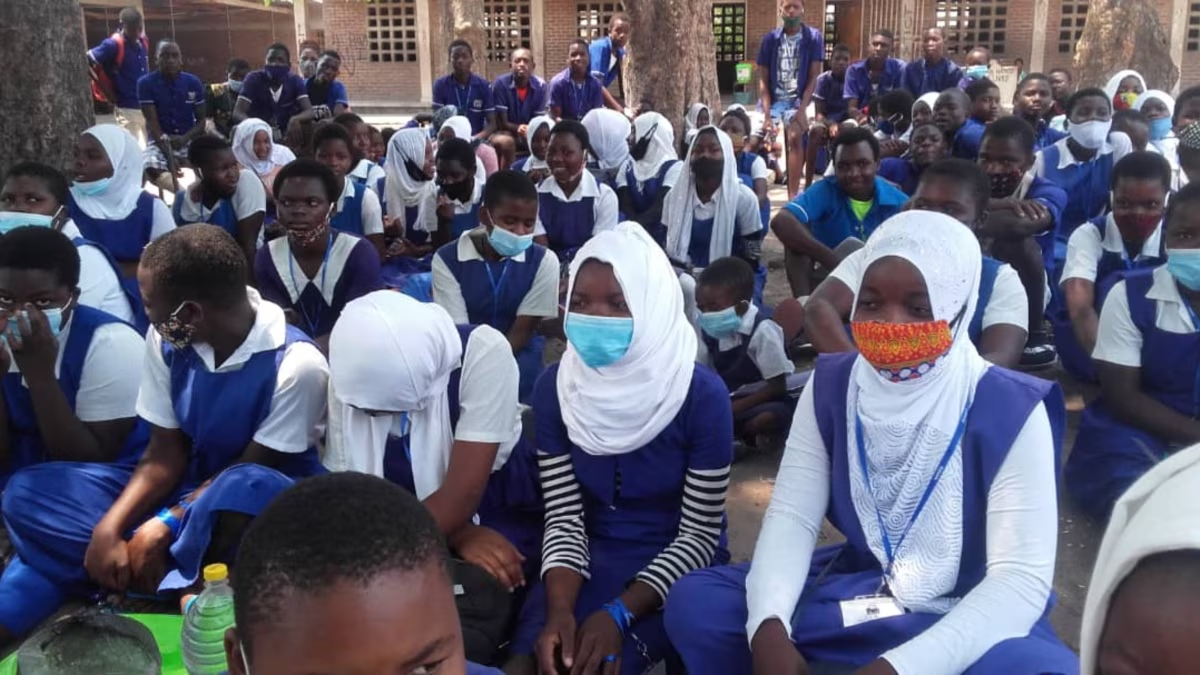
Helen who lives in Kasungu got married after she was forced to drop out school. In a space of two years, she gave birth to two sets of twins.
Originally from Balaka, Helen got married to Clifford Jere a Kasungu based tobacco tenant from Gwaza village, Traditional Authority Khosolo.
It was during her third pregnancy when doctors at Kasungu district hospital advised her of importance of family planning.
Antenatal sessions in Malawi are patronised by women alone, so it was the case with Helen as her husband was not there.
But Clifford insisted it was his right to enjoy intimacy with his wife without hindrances and a fifth child was born.
The couple endeavored to obtain a traditional family planning method from traditional doctor who guaranteed them of total effectiveness of the herbs.
However, Helen became pregnant for a sixth child. It was this time when health workers introduced vasectomy method as the best for the couple which Clifford misunderstood as castration.
According to a snap survey Malawi24 did, in some areas in Kasungu, Mzimba and Lilongwe couples are still using traditional family planning methods which are not effective.
This has led to unplanned pregnancies, thus putting pressure on families, society and the government.
According to a report by National Statistical Office (NSO), the country’s population will hit 32 million in 2048.
Health expert Maziko Matemba says as a country Malawi is failing to put more resources on family planning methods.
“Malawi population growth is higher than what the country can sustain to protecting its citizens. The increase in population is putting pressure to government and the major challenge we are having as a country is that most of the population policies don’t talk to each other and also lack of sustainable funding to family planning. For example, Malawi only provide MK200 million to family planning against a population of 18 million people and also there is a strong religious stand against Family planning and safe abortion is encouraging the population increase,” he said.
Asked what will be end results if government continues to underfunding, Matemba said population growth will continue putting pressure on government and can also lead to land pressure.
He appealed to individuals to follow family planning methods at all times saying some are easy to use for example the use of condoms.
At government level, he said there is need to fully fund reproductive health departments and other related sectors that are key in addressing reproductive health issues as a matter of priority but also review of policies that are contradicting each other.
Director of reproductive health at ministry of health Fannie Kachale also bemoaned lack of funds to implement sexual health projects saying the ministry needs an estimated amount of MWK8.9 billion but current allocation is MWK 179 million only.
Speaker of the National Assembly Catherine Gotani Hara, during a capacity development workshop on Sexual and Reproductive Health Rights (SRHR) in Lilongwe, stressed the need for members of Parliament to be enlightened on (SRHR) issues for them to appreciate such matters.
“MPs should be given understanding of how important it is for them to lobby government to give enough resources to (SRHR). We want MPs to be able to appreciate these,” she said.














